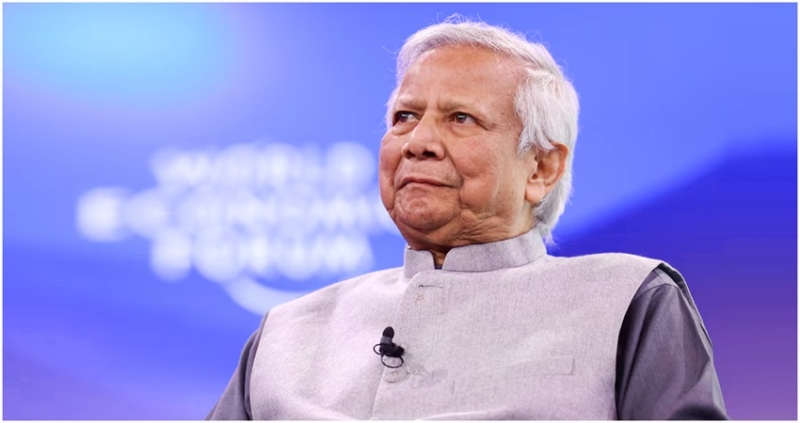- Bangladesh Heads to First Gen Z-Driven Competitive Poll |
- EC Lifts Mobile Phone Ban, Bars Photos Inside Booths |
- Youth participation vital to BD’s democratic future: C’wealth Group |
- Stocks retreat on week’s first trading day as turnover drops |
- Free education for girls up to honours if BNP wins: Zubaida Rahman |
CA Sets Feb 2026 Polls, Vows Exit After Transition Ends

File photo
Chief Adviser Professor Muhammad Yunus has announced that Bangladesh will hold national elections in February 2026, pledging to step away from politics once the democratic transition is complete.
In a landmark op-ed published Thursday in Deseret News (USA), Yunus reflected on the youth-led uprising of August 2024, the formation of the caretaker government, and the sweeping reforms now reshaping Bangladesh’s political and economic institutions.
“I have made it clear: the national elections will be held in February,” Yunus wrote. “I will not hold any position in the government that follows. My role ends when democracy is restored.”
The ‘Generation Z’ Revolution
Yunus described the 2024 uprising as a turning point in Bangladesh’s modern history, led not by political elites but by students and young people demanding dignity, justice, and democracy.
“A year ago this month, thousands of courageous students, backed by millions from all walks of life, ended a long era of authoritarian rule,” Yunus wrote. “Their peaceful protests were met with brutal repression—but they stood firm. On August 5, the dictator fled.”
At the urging of student leaders, Yunus agreed to lead a transitional administration. “On August 8, 2024, I was sworn in as Chief Adviser, alongside a council of civil society leaders. Our mission: to stabilize the nation and create the conditions for free and fair elections.”
He described the movement as the world’s first true “Generation Z revolution,” beginning with demands for employment reform but swelling into a broad national call for systemic change.
Reforms and Recovery
Since taking office, the caretaker government has focused on rescuing an economy on the brink of collapse, restoring institutional credibility, and pursuing stolen wealth siphoned abroad.
According to Yunus, the government inherited a country in deep crisis: A near-collapsed economy and plummeting reserves, A civil service riddled with politicization, Law enforcement in disarray and $10–15 billion siphoned out of the country annually over 15 years, according to Transparency International Bangladesh.
In response, the administration has delivered compensation to victims of the uprising, launched asset recovery campaigns with international cooperation, and enforced merit-based reforms in the civil service, military, and police. Yunus praised the armed forces for their restraint during the protests and professionalism in the transition period.
Global Partnerships
Yunus also highlighted Bangladesh’s shifting foreign policy, prioritizing regional stability and stronger international ties.
“As the eighth most populous nation, Bangladesh has a responsibility—and an opportunity—to be a pillar of peace and prosperity in South and Southeast Asia,” he wrote.
He cited recent engagement with U.S. Secretary of State Marco Rubio as a “positive step” toward expanding trade and cooperation. He also thanked global partners—including the UK, Japan, the EU, World Bank, and United Nations—for their support during the transition.
Despite global attention, Yunus emphasized that the caretaker government has remained focused on domestic rebuilding. “We were too busy restoring institutions, rebuilding the economy, and recovering stolen wealth to realize how closely the world was watching.”
As Bangladesh prepares for the February 2026 elections, Yunus reaffirmed his personal exit from public office. “My work ends when democracy is returned to the people,” he declared.

